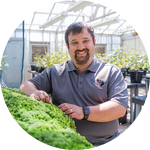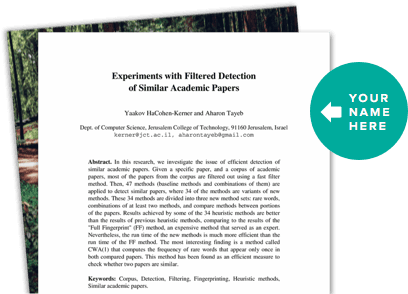About This Project
Phlox is highly susceptible to powdery mildew, impacting plant health and increasing fungicide use. While resistance varies between varieties, the molecular mechanisms of age-related resistance are poorly understood due to a lack of affordable phenotyping tools. This research will develop open-source, scalable phenotyping platforms using Phlox as a model, integrating tools like FarmBot to create accessible methods for studying complex traits and advancing plant science.
Ask the Scientists
Join The DiscussionWhat is the context of this research?
Phlox is an important horticultural crop, but many cultivars are highly susceptible to the fungal pathogen, powdery mildew (Erysiphe cichoracearum)(https://archive.org/embed/herb... ). The disease manifests as powdery growth on leaves, flowers, and stems, diminishing photosynthesis and ornamental value. It is more common on the abaxial leaf surface, but leaf curling complicates high-throughput phenotyping (https://doi.org/10.1094/PDIS-1...). In spite of many cultivars having been assessed for resistance, the molecular mechanisms of ontogenic resistance remain poorly understood (https://doi.org/10.1094/PHYTO....). Additionally, relatively few wild species have been tested, leaving gaps in understanding the genetic basis of resistance across the genus.
What is the significance of this project?
This study will conduct the first genome-wide association study for powdery mildew resistance in Phlox, enabled by advancements in high-throughput phenotyping via our improvement of the FarmBot system. We will address challenges in agricultural production and more broadly, plant science research. Of equal importance in this project is the promotion of accessible science for underrepresented groups through collaboration with the Michigan State University 4-H Children's Garden and MSU extension. The developed technologies and methods will increase access to low-cost precision agriculture systems, empowering scientists worldwide with affordable tools to tackle new research questions.
What are the goals of the project?
We have identified three main goals for this project. First, the FarmBot platform will be enhanced with flexible protocols and imaging systems to enable automated monitoring of powdery mildew progression. This approach will allow reliable, reproducible, high-throughput phenotyping at the whole-plant level. Second, using a genome wide association study (GWAS) the genetic basis of powdery mildew resistance in Phlox paniculata will be elucidated. Last, rarely cultivated Phlox species will be assessed for resistance potential and using transcriptomics we will explore whether resistance genes identified in the GWAS are expressed. Taxa with resistance will be incorporated in future breeding efforts.
Budget
FarmBot provides an affordable, high-throughput solution for automating plant care and data collection. By integrating FarmBot with our BAIR imaging system, we can precisely monitor plant growth, disease progression, and resistance over time while minimizing the time required for routine plant care. It will enable consistent and reproducible data collection, reducing human error and allowing for larger-scale studies. FarmBot’s open-source design aligns with our goal of creating accessible research tools, fostering innovation, and lowering barriers for future plant research. Purchasing additional FarmBots will significantly enhance the efficiency and scope of our study, helping to uncover molecular mechanisms behind ontogenic resistance and ultimately improve disease management in horticultural crops.
Endorsed by
 Project Timeline
Project Timeline
Our goal is to have three greenhouse units and three outdoor units in the MSU Horticulture Gardens. Identification of hardware and software limitations will be completed using the greenhouse FarmBots during the 2025 growing season while growing stock Phlox seeds and cuttings. Fall 2025 we will begin developing hardware and software improvements for implementation during the GWAS (Genome Wide Association Study) and species which will take place the following two years.
Dec 02, 2024
Project Launched
Jan 31, 2025
Greenhouse FarmBots assembled
Aug 01, 2025
Current hardware and software limitations of FarmBot identified
Nov 01, 2025
Outdoor FarmBots assembled
Apr 01, 2026
GWAS (Genome Wide Association Study) begins
Meet the Team
Affiliates
Mason McNair
My lab (Plants X Tech) focuses on incorporating cutting edge technology into established methods of plant science research. Our current focus is on the development of high-throughput, low-cost methods that leverage technologies like 3D printing. By creating innovative tools and resources, we aim to empower researchers and conservationists with the means to tackle challenges in a resource-efficient manner. By involving my students in projects that incorporate a wide range of data sources, collection methods, and bespoke solutions, I aim to nurture the next generation of scientists with a profound appreciation for collaboration, exploratory methods, and biodiversity in plant science.
Matt Johnson
My lab (PEAT: Plants: Everything About Them) is focused on the origin and maintenance of biodiversity in plants, using high throughput DNA sequencing methods. Our lab pushes research forward by making previously intractable questions more feasible - either by reducing per-sample costs through innovative use of lab robotics, the use of scientific collections (e.g. herbarium specimens) in research, or through development of new open source bioinformatics pipelines.
Lab Notes
Nothing posted yet.
Additional Information
As much as we would love to receive the full funding amount, even enough funding for a single FarmBot will enable us to begin this research project in a meaningful way.
Project Backers
- 1Backers
- 100%Funded
- $9,000Total Donations
- $9,000.00Average Donation






